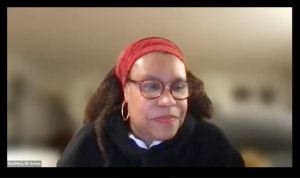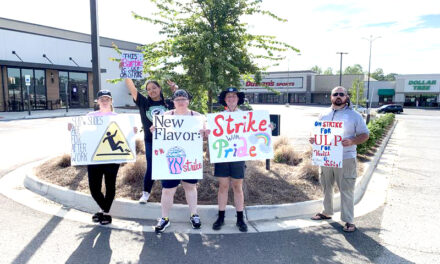By Aysia Morton
Special to the AFRO
DC Action, DC Out-of-Time School Coalition, the Latin American Youth Center (LAYC), and the DC Girls Coalition held a virtual community discussion on the urgent need to shift the District’s narrative on youth and crime. In attendance to this important summit was the District of Columbia’s Attorney General (AG) Karl Racine, who listened intently and participated in discussions.
“We recognize that the recent increase in youth crime is the result of systems that fail our communities most in need and that require immediate and long-term solutions,” said Kim Perry, Executive Director of DC Action. “The pandemic has caused significant trauma to children and youth, who have seen their families’ financial stability upended, experienced loss and grief, and been forced into social isolation. The structures and opportunities that typically keep young people safe, healthy, and thriving have been eroded and undermined.”
The webinar hosted over 200 attendees and cultivated a space for the young people in attendance to express their experiences with out-of-school time programs and their ideas to improve DC’s Juvenile Justice System.
“I would describe the way DC reacts to youth in crime as punitive—punishing people for what they did; when what really should be done is restorative justice— making amends for the people that were harmed in the crime, but also restoring whoever committed the crime back into the community so they can hopefully get better and not commit a crime again,” said student and panel member Jamison Ford when asked how D.C. deals with crime from a young person’s perspective.
Student Calvin Armstrong’s hand shot up to answer the question as well. “The main thing that needs changing is the overall police hatred towards Black and Brown people,” said Armstrong. “Everyone should come to the same to understand that we are all the same people and should be treated fairly.”

The resounding agreement from members of the discussion was that the best way to prevent crime was by addressing its root causes and using restorative justice and rehabilitation. Kristi Matthews-Jones, Director of the DC Girls Coalition, shared that root causes of crime and violence are often emotional, mental and out of survival.
“At DC Girls Coalition, a lot of our programming has come directly from the youth we are working with and supporting,” said Matthews-Jones. Last summer, the young people within the organization expressed the difficulties of dealing with COVID, while balancing the hardships of school and life. The Coalition worked with a community healer to teach the youth coping mechanisms for anger, depression, anxiety, grief and other emotions. They listened and responded to the youth’s emotional needs, and Matthews-Jones believes that is the most crucial element of their organization.
“In fact, a more effective approach should focus on positive youth development, that you find in out-of-school time programs that provide opportunities for young people to not only have a safe space to spend time after school and in the summer, but also to access social-emotional learning supports, mentoring, and a range of creative outlets,” said DC Action’s Perry.
The programs involved in the panel urge D.C. Mayor Muriel Bowser and the District of Columbia Council to increase local funding for out-of-school time organizations significantly. “What’s important here is the local government’s responsibility to contribute to the out-of-school time sector,” said Perry. “We need to go deep for the organizations already doing the work. They need more money and we need to spread it further. There are parts of D.C. that are not being served and do not have programs at all. We need to serve them,” said Perry.
Attorney General Racine expressed profound gratitude to the programs and their impact on its youth members. “Our philosophy at the office of the Attorney General is that the front door to the criminal justice system is too wide; we think the door needs to narrow. The criminal justice system hurts more than it helps and we know that because the data shows it,” said Racine.
DC Action’s team said it is actively working on what comes next, including following up with their partners at LAYC, DC Girls’ Coalition and Racine.
Help us Continue to tell OUR Story and join the AFRO family as a member – subscribers are now members! Join here!
The post Taking action to shift the narrative of youth and crime in D.C. appeared first on AFRO American Newspapers .










